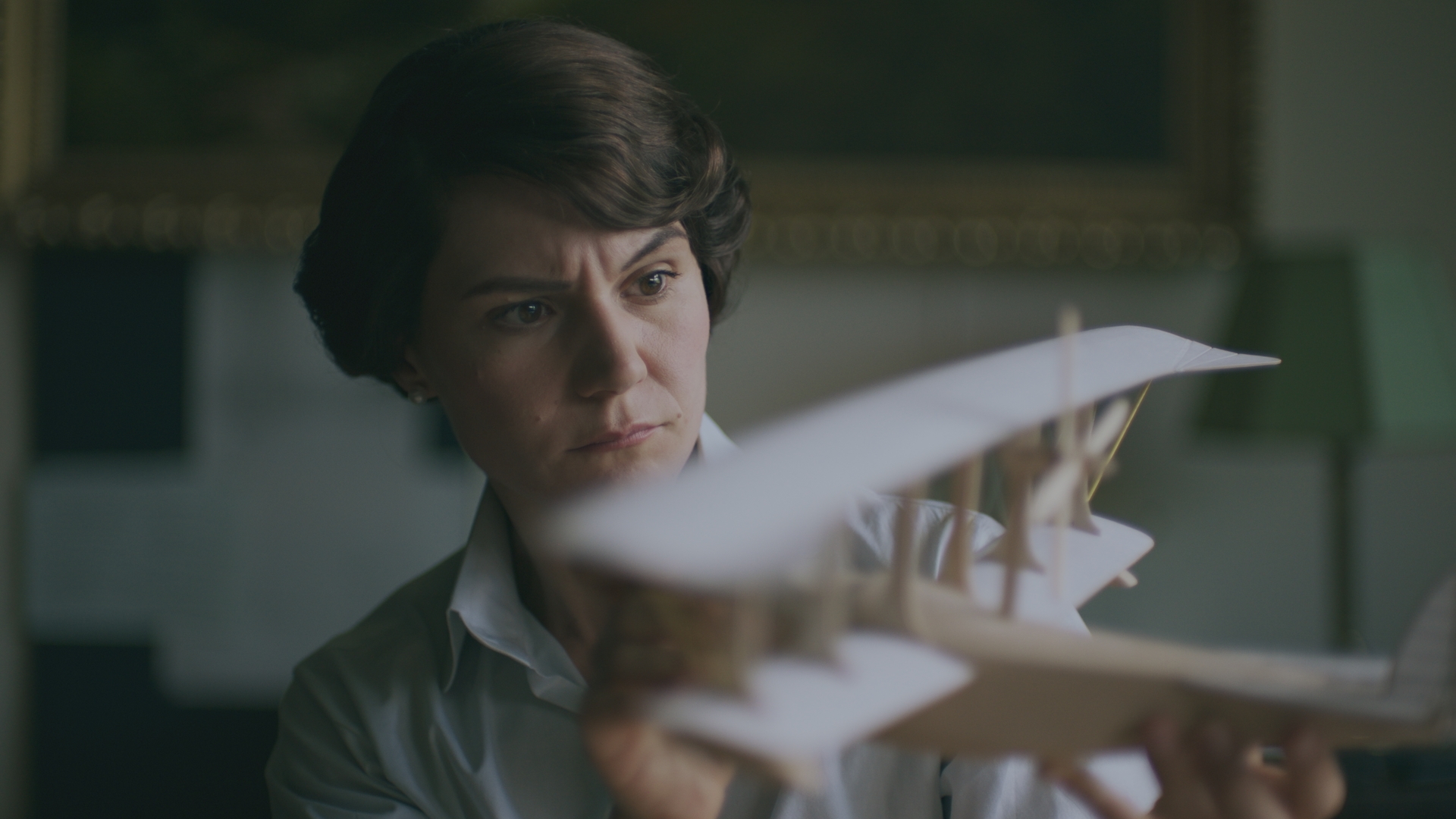Docu-drama (90min / 2x52min)
A Metafilm Production, in co-production with ORF, NDR and Arte
Around 1910, Melli Beese was the first German female pilot to make her mark in the male world of aviation pioneers. In France and Austria-Hungary, women are also stars at the life-threatening flight meetings. But when the First World War broke out, they were caught up in the mills of war and politics…
The sculptor and technology student Melli Beese (Lilith Häßle) arrives at the brand new Berlin-Johannisthal airfield in 1910 and wants to learn to fly. With dramatic scenes and spectacular archive footage, the film traces what this meant at the time: risking one’s life on fragile flying machines made of wood and fabric. At first, no one wants to teach a woman, then she is sabotaged by jealous male colleagues. But neither this macho behavior nor a serious accident can stop Melli: She becomes Germany’s first female pilot, founds her own flying school and designs new models.
The Austrian-Hungarian pilot Lily Steinschneider (Alina Weillechner) and the Frenchwoman Marie Marvingt also cause a stir at European air meetings and embody a new image of women: independent, tech-savvy – and in pants! Three dozen women worldwide obtained their pilot’s license by 1914, but the First World War shattered their dreams: civil aviation no longer existed and women were not wanted as military pilots.
In the 1920s, a new generation of female pilots achieved spectacular records. Women crossed the Andes and the Atlantic, and even flew around the globe. But in the early days of commercial aviation, flying was largely a man’s job. It was not until the end of the 20th century that the major state-owned airlines regularly employed female pilots – today the proportion of women in the pilot profession is still only 5-10%. For them, Melli Beese, Lilly Steinschneider and Marie Marvingt were ground-breaking role models.
Thanks to the Aviaticum Museum in Wiener Neustadt, the film was shot with two authentic aircraft replicas from the pioneering era.
